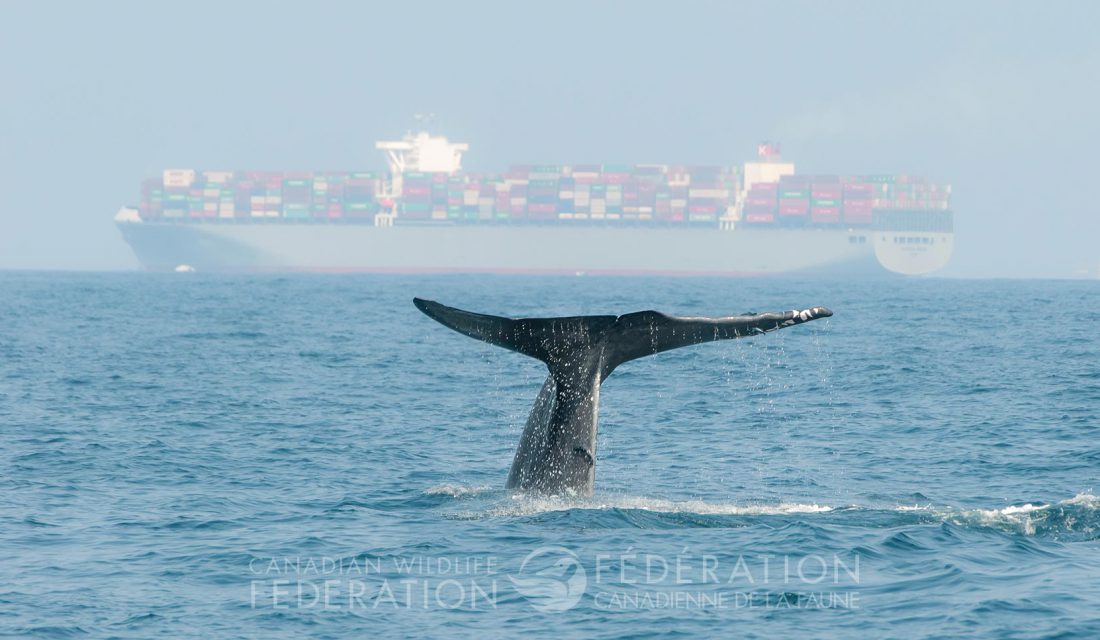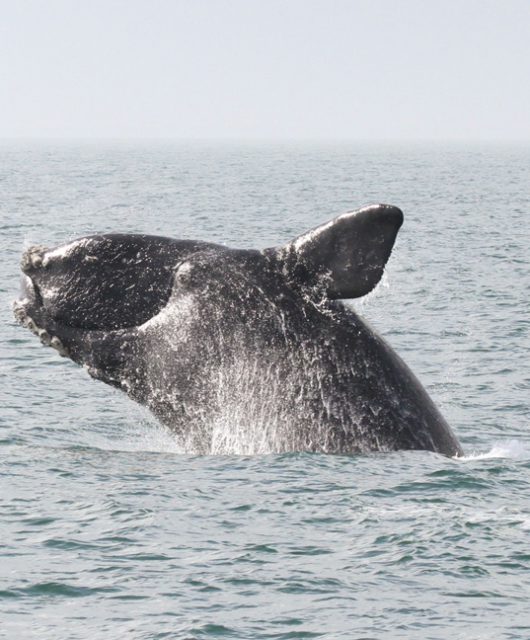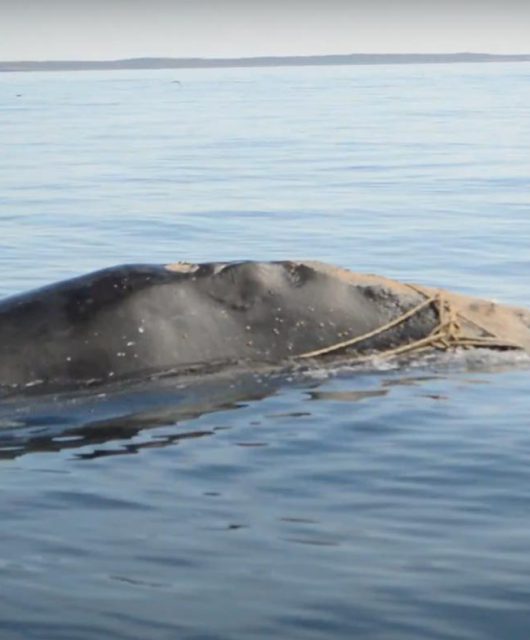From cargo ships to pontoon boats, vessels can pose quite a risk to our marine and freshwater species.
Ship strikes, for example, can negatively impact all kinds of whales; many of which undergo incredible migrations every year between calving and feeding grounds. When these migratory routes cross paths with the shipping lanes, there’s a higher risk of the whales and the vessels colliding which can result in injury or death. Necropsies performed on whales killed by ship strikes have found that some ship strikes might even fracture bones, while most will cause severe hemorrhaging to the blubber and tissue of the whale’s body. Deep propeller cuts are also common and can lead to large open wounds and even sever their spine/flukes and pectoral fins.
But whales aren’t the only creatures harmed by boat strikes. Freshwater animals, like turtles, can also fall victim to boating collisions. The Northern Map Turtle is at a particularly high risk as they enjoy basking at the water’s surface. Boat propellers can be ruthless to these at-risk reptiles; a propeller can kill a turtle or even cut open the top of its shell. One study conducted in a waterway northeast of Toronto found that 18 per cent of Northern Map Turtles had propeller injuries to their shells.
Even if a boat doesn’t hit an animal, it can still create large wakes and disturb the wildlife around it. Take the Common Loon for an example. A large wake can knock eggs right out of a Common Loon’s nest, flood the nest or disturb the nesting pair. It can also cause chick mortality if the chick is separated from its parents.
Sounding Off
 Noise pollution can also harm a variety of wild species – from krill to crabs. A 2017 study published in the journal of Nature Ecology and Evolution found that an underwater blast actually obliterated two-thirds of zooplankton near the blast. These creatures are incredibly important to the ecosystem. Blue Whales, for example, survive primarily on these minute organisms.
Noise pollution can also harm a variety of wild species – from krill to crabs. A 2017 study published in the journal of Nature Ecology and Evolution found that an underwater blast actually obliterated two-thirds of zooplankton near the blast. These creatures are incredibly important to the ecosystem. Blue Whales, for example, survive primarily on these minute organisms.
Speaking of whales, these marine mammals use sound to navigate the waters, care for their young, find prey and mates and also communicate with one another through sound as well. Unfortunately, there is so much noise in our oceans that are manmade these days that these marine mammals barely stand a chance. Oil drills, sonar sounds, ships and even seismic tests are so incredibly loud, our whales are being negatively affected. A container ship moving through the ocean, for example, make sounds up to about 130 decibels underwater– that’s about as loud as the wail of a siren. And it only gets worse. Sonar sounds can be 235 decibels loud – that’s twice as loud as a rock concert. Some researchers have considered that seismic noise in the oceans are so loud that whales don’t hear oncoming ships – increasing the risk of collisions. Researchers have also found that sonar noise can actually cause some whales to beach themselves.
Will you help our waterways today?





